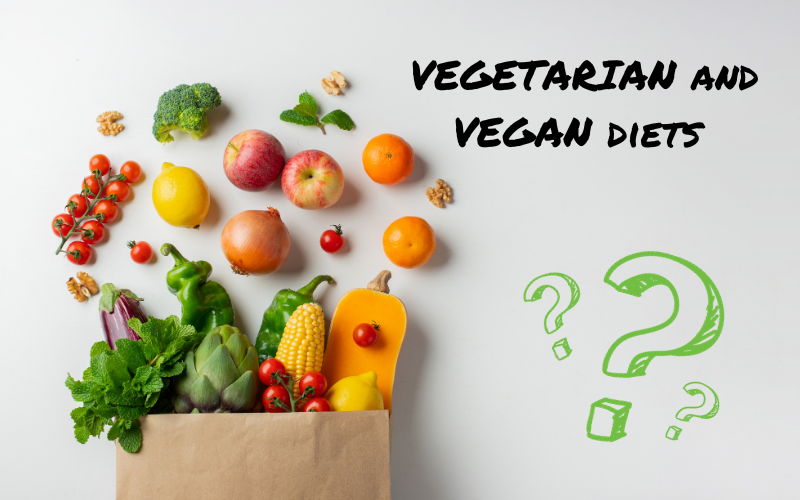Vegetarian and vegan diets are becoming more popular ways of eating. Like any eating-plan, vegetarian or vegan doesn’t necessarily mean healthy!
If you are already vegetarian or vegan, or just considering these options, it is essential that you’re getting the vitamins and minerals your body needs, and whatever you are replacing animal-based products with is actually nutritious. The trick is to stick to whole foods that are as close to their natural form as possible and, as always, be very wary of highly-processed foods where nutrition can be compromised.
You also need to be careful to include certain nutrients that are more challenging to obtain from plant-based sources.
Things to be mindful of:
- Protein can be easy to fall short on vegetarian and vegan diets. Ensure an adequate intake of protein and aim for variety, as some plant-based sources may be lower in certain essential amino acids. Beans, lentils, tofu, tempeh, quinoa, dairy or protein rich alternatives and soy products are good to include (as well as eggs if you are eating those).
- Vitamin B12 is primarily found in animal products, plant-based sources are often not enough. You may need a supplement here.
- Calcium - dairy products are a major source of calcium, so it's important to include alternative sources if you are vegan and don’t have dairy products.
- Iron - plant-based iron (non-heme iron) is not as readily absorbed by the body as heme iron from animal products. Include iron-rich foods with vitamin C-rich foods to help enhance absorption.
- Omega-3 fatty acids - if you eat fish, oily fish like salmon and mackerel are great sources of omega 3. You could also consider a fish oil supplement. If you don't eat fish, be sure to include plant-based sources of omega-3s and consider algae-based supplements for DHA and EPA omega-3s.
- Zinc - plant-based sources of zinc are less bioavailable than animal sources. Include zinc-rich foods and consider zinc supplementation if needed.
- Iodine is essential for thyroid function and is mainly found in seafood so vegans may have lower iodine intake.
- Variety - eating a diverse range of plant foods helps ensure a broad spectrum of nutrients. Include a variety of fruits, vegetables, whole grains, nuts, and seeds in your diet.
You can get good understanding of these nutritional requirements, and specific foods to include in your diet to obtain these nutrients, by consulting with a registered dietitian or nutritionist at Mission Nutrition. Anna Williams, Amy Allport, Melissa Greacen and Amy Judd can all support you with personalised advice relating to vegetarian, vegan and plant based diets.
